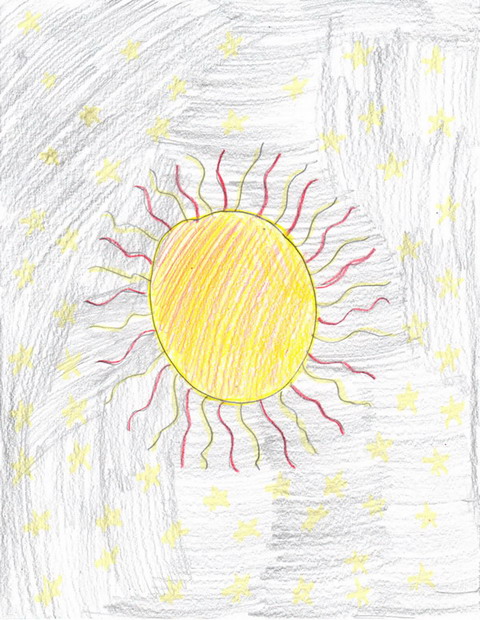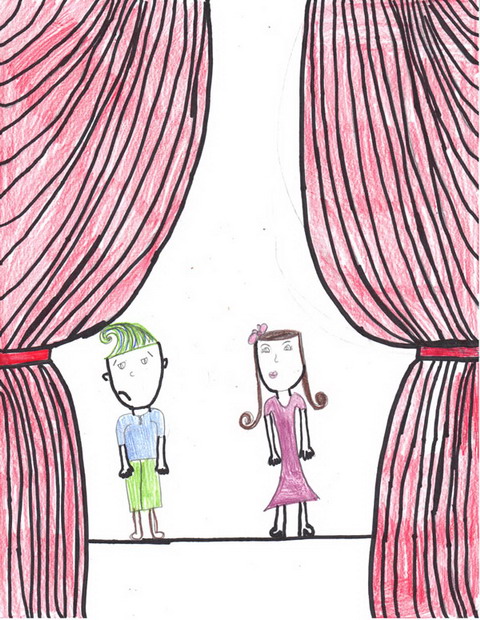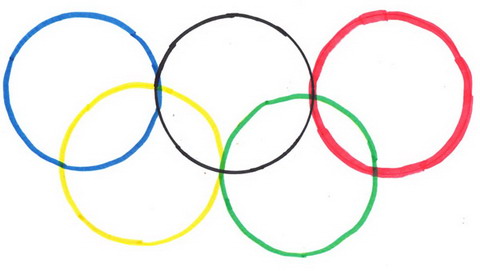“Anaximander: Told in First Person Perspective”
By: Emily M.
I am Anaximander, a Greek philosopher, who was the first to develop a systematic philosophical view of the world. I grew up during 610 B.C. During my life, I created a map of the known world, which was later corrected by my fellow Milesian, Hecataeus. I also set up a gnomon (a shadow casting rod) at Sparta and used it to demonstrate the equinoxes and solstices, and perhaps the hours of the day. I live in Miletus, a city of Lonia. I worked in the fields what you now call geography and biology. I belonged to the Milesian schools and learned the teachings of Master Thales. I thought that the sun and the moon were hollow rings filled with fire. I was the first speculative astronomer, and I originated the world-picture of the open universe. I speculatd and argued about “The Boundless” as the origin of all that is. Master Thales and I shared the theory that all things originated from one original element and that ultimately are that element. Unlike Thales, I speculated that all things originated from air, not water. I also had theories about cosmology. One of these theories was that the moon shined its own light, like the sun. I created many great theories in my life, though some are left unknown. My life ended in 546 B.C.
I often questioned myths. I explained that thunder and lightning did not come from Zeus, but they have natural causes. My explanation for these things was that they were caused by pneumatic, or compressed air which builds up inside thick clouds, until it breaks out. The forceful parting of the cloud then causes thunder and lightning. I also thought that rain came from vapor sent up by the things beneath the sun. I made one of the first attempts in the Western world at creating a speculative scientific model of the cosmos. I started by building a spherical model of the world, the planets, and the stars in which planets lie behind one another. I did this on basis of geometry and mathematical calculations rather than by drawing on mythological accounts. I attempted to determine the distance of the planets from earth as well as their size. I further proposed that the sun and the starts are fires trapped in globular masses by cooler air. I believed that the earth was cylindrical in shape, its diameter being 3 times its height. I also thought that the eart was aloft and not supported by anything.
Democracy was invented in Athens, Greece under the rule of Ceisthenes. It was also the first ancient civilization to have invented democracy. All free men who were born in Athens and were adults were allowed to attend the Assembly and participate in political decisions. They gathered 40 times a year and required at least 6,000 citizens in order to pass a valid vote. Plato and Socrates disagreed with democracy, believing that public masses were too ignorant to make a correct decision. Instead of people electing a representative to vote for them, they voted on their own. Before democracy, people had not say in the day to day functioning of their state. Democracy tried to bring the common man closer to the systems and procedures of the state. Whatever the most people voted for won. Some men could not be there to vote every time because they had crops to tend to and other jobs, so eventually they just selected people that could be there every time. The other people just came in whenever they had the chance to. At the meetings, they made decisions about war and foreign policy, wrote and revised laws, and approved or condemned the conduct of public officials. The word democracy comes from the Greek words demos (meaning people) and kratos (meaning power).
The Olympics were invented in ancient Greece in early 700 B.C. These athletic games were held in honor of the Greek gods. No women were allowed to watch the games, and only Greek nationals could participate.
They used to be held within the span of one day, but later got moved to 5 days. The events that occurred on each day are not known. But the first day was devoted to sacrifice. On the middle day of the festival, 100 oxen were sacrificed in honor of a god. Athletes often prayed and made sacrifices to themselves.
On the second day was the foot race, the main event that took place in the stadium. It was an oblong area enclosed by sloping banks of earth.
They were staged every 4 years and held in Olympia, a valley near a city called Elis. They were not only sporting competition in Greece at the time, but they were the most popular. If two city-states were at war, it was halted for the duration of the game. Women, foreighners, slaves, and dishonored citizens were not allowed to participate in the games.
Theatre began in ancient Greece. It began with festivals, where the Greeks honored their gods. At the early Greek festivals the actors, directors, and dramaticists were all the same person. Tragedy, comedy, and satyr were the theatrical forms. Satyr plays dealt with the mythological subject in comic manner. The cast consisted of all males, who were amateurs, not professionals. Only three actors could be used in each play. The actors had to gesture grandly so that the entire audience could see them. All of the actors wore exaggerated costumes and masks. Tragic masks had a mournful or pained expression, while comic masks were smiling or leering. Few non speaking roles were allowed to perform on-stage. Due to the number of actors on-stage, the chorus evolved into a very active part of Greek theater. Music was often played during the chorus delivering of its lines.
The Greek theaters were constructed so that event he smallest sound was delivered to any seat. It was called a theatron. They were large open-area structures constructed on the slopes of hills. They consisted of 3 main elements: the orchestra, skene, and audience.





“Anaximander: Greek Philosopher.” www. britannica.com. Retrieved on February 15, 2013.
“Anamixander.” www.ancienthistory.about.com. Retrieved on February 3, 2013.
“Democracy.” www.historyforkids.com. Retrieved on February 3, 2013.
“Olympic Games.” www.infoplease.com. February 15, 2013.
|
